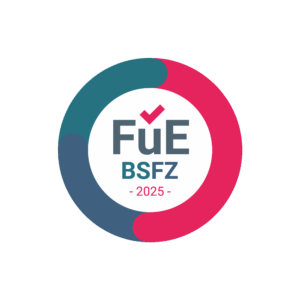
How to Self-Study Artificial Intelligence for Free: The Ultimate Guide 2025
Estimated reading time: 8 minutes
Key Takeaways
- Anyone can learn AI for free in 2025—quality resources abound.
- Start with beginner-friendly courses before jumping into code-heavy material.
- Ethics and privacy are not optional; they’re core to responsible AI practice.
- Hands-on projects (think Kaggle) accelerate real-world understanding.
- Consistency beats intensity: small daily study sessions win in the long run.
Table of contents
Why Self-Study AI?
*Artificial intelligence is no longer niche—it’s everywhere.* Businesses, healthcare, education, and even the arts leverage AI to innovate and stay competitive. As Die Auswirkungen von KI auf die Bildung: Chancen und Risiken explains, AI is transforming **every** sector, which means AI literacy is quickly becoming a must-have skill.
Essential Free AI Learning Resources for 2025
- Elements of AI (University of Helsinki & MinnaLearn)
- No advanced math or programming needed.
- Covers AI fundamentals *and* ethics—reinforced by Datenschutz und Ethik in der KI: Was Unternehmen beachten sollten.
- Free certificate; ~30 hours of engaging content.
- AI for Everyone (DeepLearning.AI by Andrew Ng)
- Perfect for non-technical learners—focuses on strategy & business impact.
- Ties directly to KI-Dienstleistungen für KMU: Wie kleine und mittlere Unternehmen mit Künstlicher Intelligenz Effizienz und Wachstum steigern können.
- 6-hour commitment; free certificate.
- IBM’s Introduction to AI (Coursera)
- Technical dive into ML, deep learning, and neural networks.
- Hands-on labs & projects; ~13 hours.
- Google AI Courses
- Multiple tracks including cutting-edge generative AI modules.
- Clear explanations + regular updates.
- Microsoft AI Course
- Structured pathway from basics to advanced neural topics.
- Content refreshed with latest industry trends.
Intermediate Learning Resources
- Prompt Engineering for ChatGPT (Vanderbilt University)
- Crafting effective prompts, optimization techniques, and patterns.
- Free certificate + real-world applications.
- Generative AI with LLMs (AWS & DeepLearning.AI)
- Focus on large language models and deployment scenarios.
- Basic Python required; certification included.
Essential Learning Platforms and Tools
- Kaggle – hands-on projects, competitions, and an active community.
- Google AI Hub & Microsoft AI School – structured tutorials and practical exercises.
- MOOCs from Top Universities – Stanford, MIT, and more via Coursera/EdX (audit for free).
Recommended Learning Path
- Master the Basics
Start with the introductory courses above, learn key terminology, and dive into ethics via Datenschutz und Ethik in der KI: Was Unternehmen beachten sollten. - Develop Coding Skills
Focus on Python through free coding tutorials; practice daily. - Gain Practical Experience
Apply knowledge on Kaggle and explore business automation with Prozessautomatisierung für Unternehmen: Grundlagen, Strategien und Zukunftsperspektiven für effiziente Geschäftsabläufe. - Explore Advanced Topics
Move into deep learning, neural networks, and generative AI modules. - Stay Current
Follow reputable AI blogs, YouTube educators, and marketing innovations via KI-Marketing-Strategien: Effizienz steigern, Kunden binden und personalisierte Kampagnen erfolgreich umsetzen.
Additional Tips for Success
- Maintain Consistency – schedule regular study blocks and celebrate small victories.
- Practice Actively – build mini-projects, join competitions, share insights in study groups.
- Leverage Free Resources – open-source tools, university libraries, and community forums are your friends.
The Road Ahead
Self-studying AI is a marathon, not a sprint. With discipline, curiosity, and the free resources above, you can build an impressive AI skillset without spending a cent. *Stay curious, keep experimenting, and enjoy the journey.*
Frequently Asked Questions
Q1: Do I need a powerful computer to learn AI?
Not initially. Many beginner courses run entirely in the browser or provide free cloud environments like Google Colab.
Q2: How long does it take to become proficient in AI?
With consistent effort (5–7 hours per week), you can grasp fundamentals in 3–4 months and tackle intermediate projects within a year.
Q3: Is math essential for AI?
Basic algebra and probability help, but most beginner courses emphasize intuition over heavy math. You can deepen mathematical understanding later.
Q4: Are certificates from free courses valued by employers?
Certificates show initiative, but tangible projects and a solid portfolio carry more weight during hiring.
Q5: How do I keep up with rapid AI advancements?
Subscribe to AI newsletters, follow research papers, join online communities, and continuously build small projects to apply new concepts.
Bildquelle:Bildquelle

